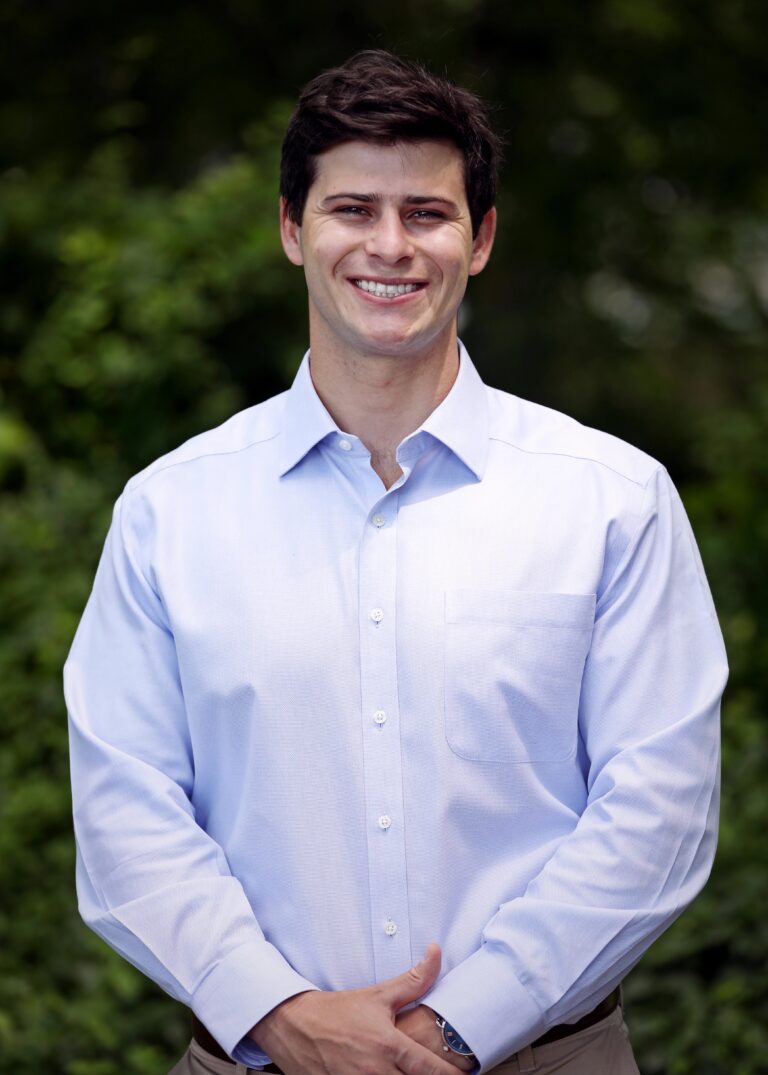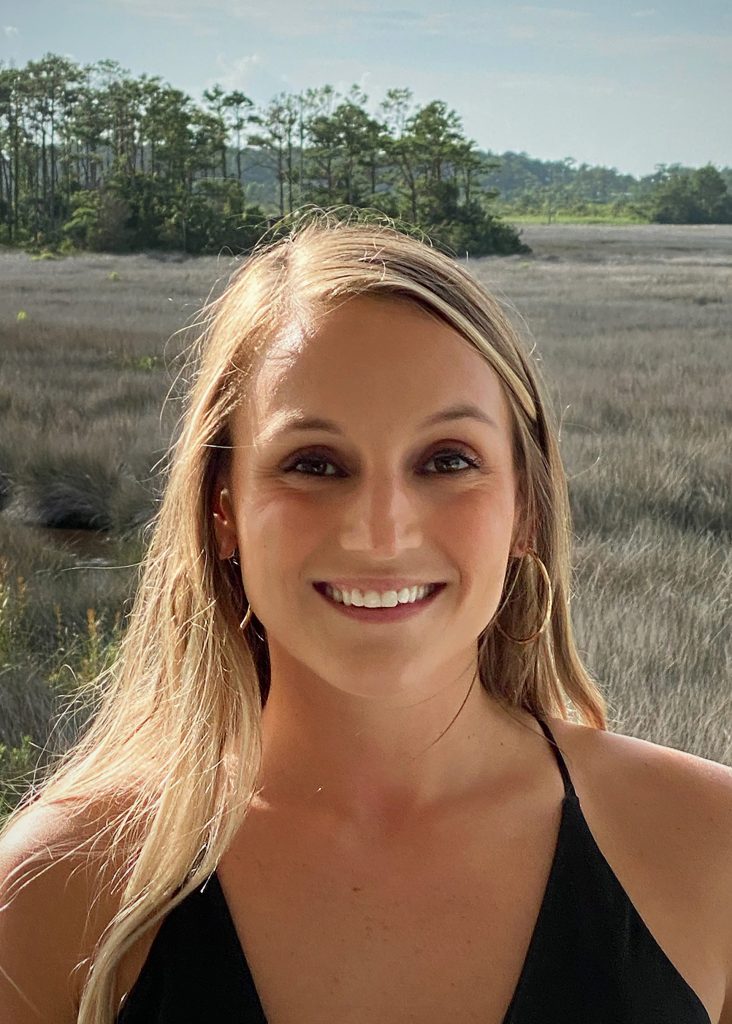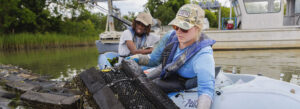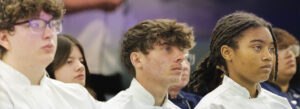Above left to right: Shelby White and Challen Hyman
TWO VIRGINIA STUDENTS AWARDED NMFS-SEA GRANT FELLOWSHIPS
The National Marine Fisheries Service and Sea Grant have announced the 2021 cohort of their Fellowship in Population and Ecosystem Dynamics and Marine Resource Economics. Two Ph.D. students from the Virginia Institute of Marine Science have been selected as fellows, along with seven other fellows from across the U.S.

Challen Hyman was selected as a Population and Ecosystem Dynamics Fellow. Hyman’s research focuses on modeling nursery habitat for young blue crabs. Seagrass meadows are considered the main sanctuary for blue crabs in the Chesapeake Bay — they provide plenty of food for growing crabs and refuge from predators. But these seagrass meadows may not be able to withstand warmer temperatures from climate change.
Hyman’s model will measure how well seagrass — and other main nursery habitats, like marsh grass and cloudy water — can support young blue crabs. He will measure blue crab growth, survival, and abundance in these habitats.
“All of those questions revolve around building a model we can use to simulate, ‘Ok, if we lose seagrass entirely, whether these other habitats be able to compensate if we lose seagrass entirely? What are the expected changes to the blue crab population?” Hyman said.
As part of his NMFS fellowship, Hyman will collaborate with Daniel Hennen, a member of the Chesapeake Bay Stock Assessment Committee at the Northeast Fisheries Science Center. Prior to his Ph.D. research, he studied fish communities associated with seagrass meadows as a master’s student in interdisciplinary ecology at the University of Florida. He also earned a bachelor’s degree in environmental science from the University of Florida.
Shelby White was selected as a Marine Resource Economics Fellow. Her research assesses what factors influence participation and diversification of Virginia’s small-scale commercial fisheries. Her research will include a survey of Virginia’s commercial fishermen to see about their willingness to participate in the emerging blue catfish fishery. Although blue catfish are abundant in Virginia’s tidal rivers, the commercial fishery remains small. White will evaluate why commercial fishermen choose to participate or not participate in fisheries through the survey and interviews.
“There may be some barriers to participation, whether that’s on the processing side or the actual fishing side. It’s a low market-value species, and it’s developing,” White said. “The survey would see what has encouraged people that are landing blue catfish, why are they doing so, what motivates them to participate.”
As part of her fellowship, White will collaborate with economist Scott Crosson at the Southeast Fisheries Science Center. Prior to her Ph.D. research, White earned a master’s degree in coastal and ocean policy and a bachelor’s degree in marine biology from the University of North Carolina Wilmington.





